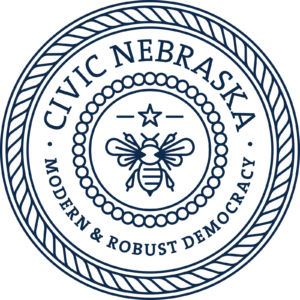By passing LB514 on Thursday, the Nebraska Legislature met an unnecessary constitutional mandate to impose new photo ID requirements on Nebraska voters. We are grateful to our lawmakers for resisting eleventh-hour maneuvering and pressure to go beyond the scope of the mandate.
Legislators have put the “least bad” option on the governor’s desk.
For all of the statehouse debate and disputes over the bill’s provisions this spring, the simple reality is this: Nebraska’s new voter ID law will not improve our state’s elections. It will not increase confidence in them. And it will not assuage the undemocratic forces seeking to undermine them. From this point forward, Nebraska will by design have more complicated and costly elections. But they will not be better elections.
At its core, voter ID is not about sound policy. It is a political tool that gives politicians the appearance of championing “election integrity” while reducing the ability and opportunity for fellow citizens to vote. Worse, in this era of weaponized disinformation such laws have taken on an additional, ominous role: They have become useful entry points for subsequent assaults on citizens’ rights.
The fight for these rights is never over, and Civic Nebraska remains vigilant in their defense.
FAQs
Documents issued by the United States, State of Nebraska, an agency or political subdivision of Nebraska, or a postsecondary institution (college student IDs).
Qualifying IDs would include hospital or assisted-living facility records and temporary ID receipts (temporary ID receipts would add a photo under this amendment).
Yes, with a provisional ballot, which would need the voter to “cure” the ballot – verify their identity with a qualifying ID – within one week after Election Day.
The measure does not limit IDs to only unexpired identification.
The Secretary of State would be authorized to provide “reasonable impediment certification” for a disability or an illness, a lack of a birth certificate or source documents, or a religious objection to having a photo ID. These provisions keep the measure from being unconstitutional.



